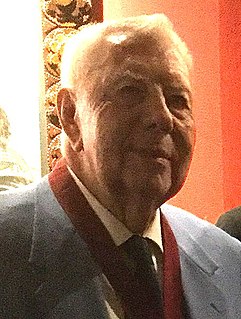A Quote by Saul David
By Vietnam, the Jeep had given way to the helicopter, and it is hard to imagine a modern army fighting a war without this supremely adaptable workhorse.
Related Quotes
Even soldiers from the Vietnam War had said that when they were fighting in that war, the landmine was just one of any number of weapons to use in the fighting. It wasn't until they began to think about the aftermath and the legacy of landmines that they recognized the long-term, indiscriminate impact of the weapon.
Most of us who were opposed to the war, especially in the early '60's - the war we were opposed to was the war on South Vietnam which destroyed South Vietnam's rural society. The South was devastated. But now anyone who opposed this atrocity is regarded as having defended North Vietnam. And that's part of the effort to present the war as if it were a war between South Vietnam and North Vietnam with the United States helping the South. Of course it's fabrication. But it's "official truth" now.
With 450,000 U. S. troops now in Vietnam, it is time that Congress decided whether or not to declare a state of war exists with North Vietnam. Previous congressional resolutions of support provide only limited authority. Although Congress may decide that the previously approved resolution on Vietnam given President Johnson is sufficient, the issue of a declaration of war should at least be put before the Congress for decision.
The Philippines and the U.S. have had a strong relationship with each other for a very long time now. We have a shared history. We have shared values, democracy, freedom, and we have been in all the wars together in modern history, the World War, Second World War, Cold War, Vietnam, Korea, now the war on terrorism.
We have an army for fighting as well as an army for labour. For fighting, we have the Eighth Route and New Fourth Armies but even they do a dual job, warfare and production. With these two kinds of armies, and with a fighting army skilled in these two tasks and in mass work, we can overcome our difficulties and defeat Japanese imperialism.
I think that the war on drugs is domestic Vietnam. And didn't we learn from Vietnam that, at a certain point in the war, we should stop and rethink our strategy, ask ``Why are we here, what are we doing, what's succeeded, what's failed?'' And we ought to do that with the domestic Vietnam, which is the war on drugs.
Women should be permitted to volunteer for non-combat service... We have no real way of knowing whether the kinds of training that teach men both courage and restraint would be adaptable to women or effective in a crisis. But the evidence of history and comparative studies of other species suggest that women as a fighting body might be far less amenable to the rules that prevent war from becoming a massacre and, with the use of modern weapons, that protect the survival of all humanity. That is what I meant by saying that women in combat might be too fierce.








































